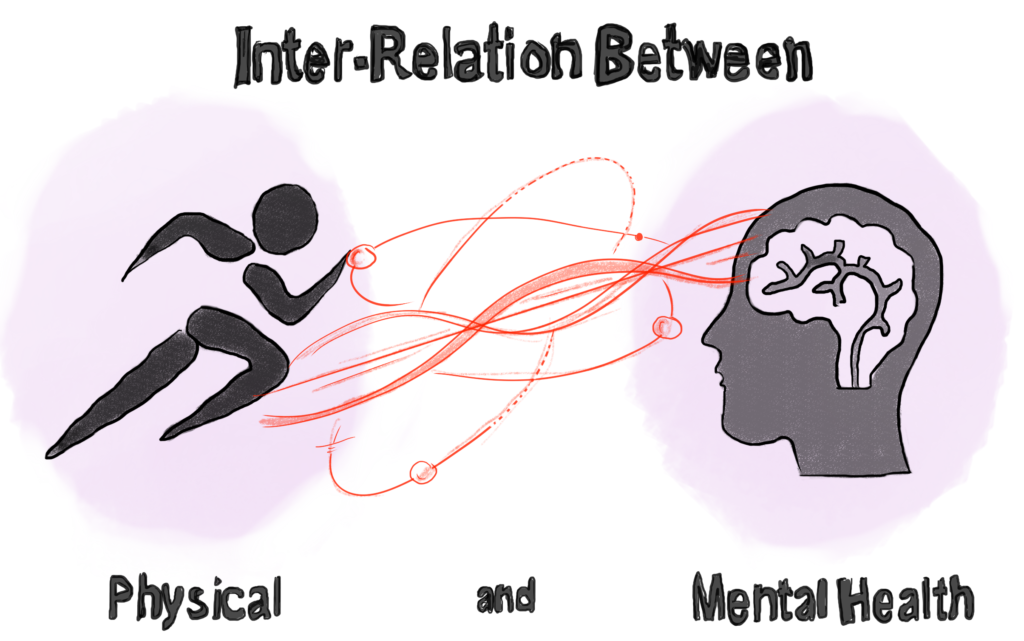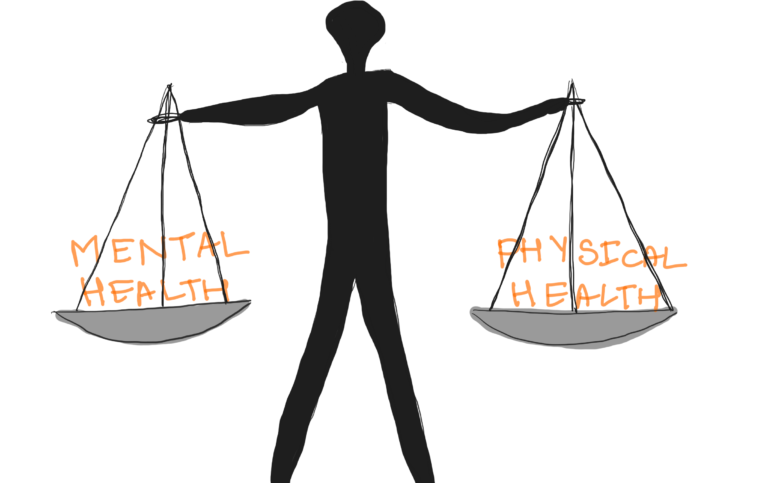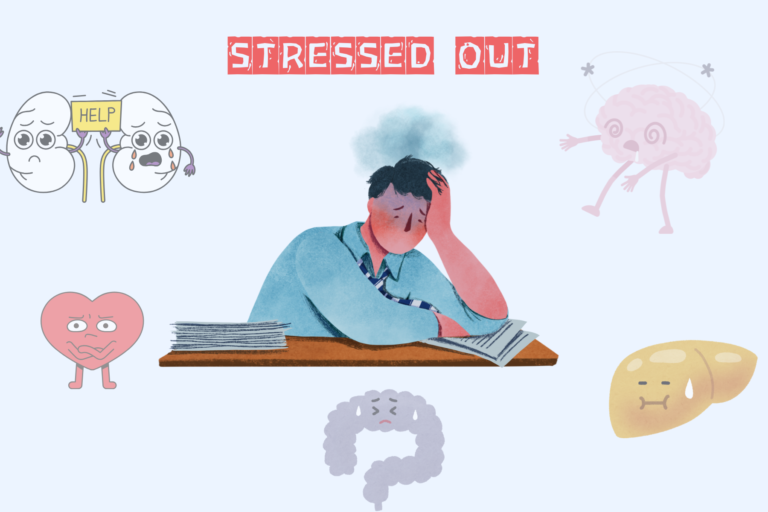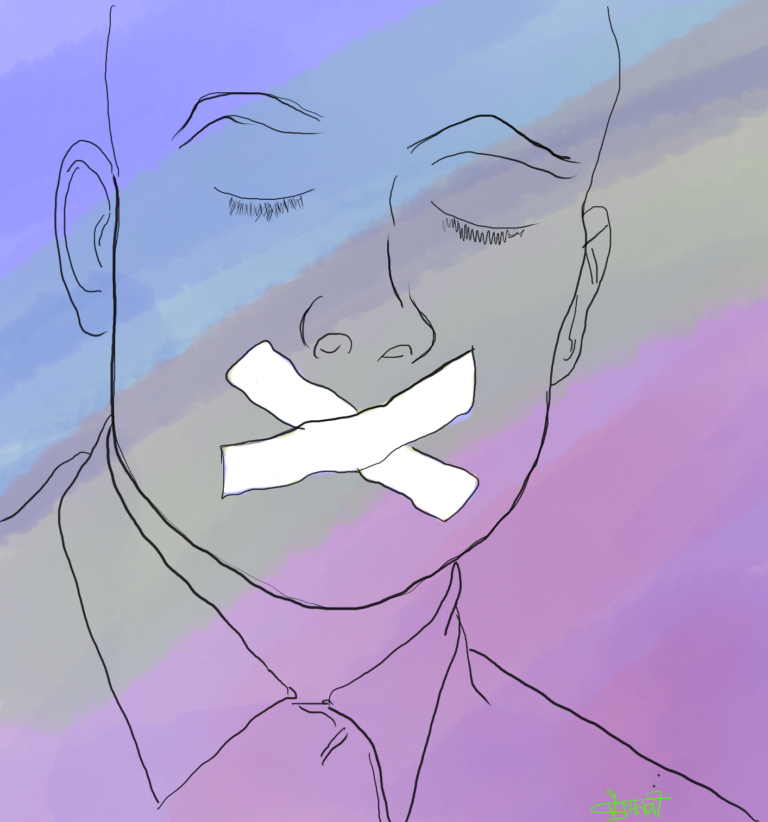Why Mental Health Matters as Much as Physical Health

You don’t wait for a broken bone to heal on its own. You don’t ignore a fever and hope it disappears. You see a doctor, take medicine, rest. But when the mind aches—when thoughts turn into storms and emotions feel too big or too empty—people say, “Just get over it.” They say, “You’ll be fine.” But what if you’re not?
As a clinical psychologist, I have seen this every day. People walking around, carrying weights that no one else can see. Some of them know something is wrong but don’t have the words for it. Others believe their struggles are not “serious enough” to seek help. But the truth is, mental health is not a luxury. It is not optional. It is the foundation upon which everything else is built—our relationships, our work, our physical health.
The Hidden Connection Between Mind and Body
It is easy to think of the brain as separate from the body, but research says otherwise. Chronic stress does not just weigh on the mind—it tightens arteries, raises blood pressure, and weakens immunity (Rozanski et al., 1997, Circulation Journal).
Consider sleep. When we don’t sleep well, our body becomes sluggish, but so does our emotional resilience. Poor sleep impairs decision-making, lowers frustration tolerance, and increases anxiety (Walker, 2011, Nature Neuroscience). Even digestion is connected; an imbalance in gut bacteria can trigger symptoms of anxiety and depression (Cryan et al., 2012, Nature Reviews Neuroscience). The body and mind are constantly talking, whether we choose to listen or not.
“Mental pain is less dramatic than physical pain, but it is more common and also harder to bear,” wrote C.S. Lewis. And yet, we act as if one is real and the other is not. This cultural bias is not only misleading but dangerous. Studies show that untreated depression increases the risk of chronic illness, from heart disease to diabetes (Turner & Kelly, 2008, Canadian Journal of Psychiatry). Trauma, too, leaves a physical imprint; the nervous system can remain in a heightened state long after the event has passed (Van der Kolk, 2010, Biological Psychiatry).

Mental Health in Everyday Life
I want to provide a few relatable examples to highlight the connection between physical and mental health, demonstrating how one impacts the other. These everyday scenarios illustrate the often-overlooked but significant influence of mental well-being on our daily lives:
- The Unexpected News Reaction
You receive a stressful email, and suddenly, you feel the need to go to the bathroom. It’s not a coincidence—your mind and gut are deeply connected. Anxiety can trigger physical responses before you even process what you’re feeling.
- The Grocery Store Dilemma
Two people walk into a store. One had a peaceful morning, the other argued with a loved one. One browses calmly, the other feels irritated by slow shoppers. The environment is the same, but their mental state changes how they experience it.

- The ‘Why Am I Crying?’ Moment
Ever teared up at a song or a random commercial? It’s not just the music—it’s your emotions surfacing. When we suppress feelings, they find unexpected ways to show up, often when we least expect them.
- The ‘I Can’t Find My Keys’ Panic
Ever been so stressed that you forget where you put something, only to find it right in front of you? High cortisol levels from anxiety make it harder to focus and retrieve memories, even simple ones.

- The Traffic Reaction
Two drivers get stuck in traffic. One listens to music, taking it as a break; the other fumes, growing angrier by the minute. The traffic is the same—the difference is their mental space.
- The ‘I’ll Start Tomorrow’ Trap
You plan to exercise, but after a long day, you convince yourself to skip it. The cycle repeats. Mental fatigue often disguises itself as physical tiredness, tricking us into avoiding things that could actually boost our energy.
- The Weekend Fatigue Mystery
You finally get a break, but instead of feeling refreshed, you feel exhausted. That’s because stress keeps the body in high-alert mode. The moment you relax, your body finally processes the fatigue it’s been holding back.
- The Overthinking Spiral
You send a message. No reply for an hour. Your mind crafts five different worst-case scenarios. But when they respond, it’s just “Sorry, I was busy.” Our thoughts shape our reality, sometimes unnecessarily stressing us.
- The ‘No Hunger, Just Stressed’ Feeling
You skip meals, not because you’re not hungry, but because stress shuts down your appetite. The body prioritizes “fight or flight” over digestion, even when the “threat” is just an overdue deadline.
- The ‘I Need Noise’ vs. ‘I Need Silence’ Contrast
After a social day, some people crave silence, while others turn on the TV just to have background noise. Mental energy depletion looks different for everyone—some need solitude, others need distraction.

Movement, Medication, and the Science of Feeling Better
Mental health is not just about what happens inside our heads—it is influenced by movement, food, relationships, and even the air we breathe. John Ratey, in Spark: The Science of Exercise and the Brain, describes how exercise is like taking “a little bit of Prozac and a little bit of Ritalin” because of its powerful effects on mood and attention (Ratey, 2008). Research supports this—regular exercise reduces symptoms of depression by regulating serotonin levels and increasing endorphins (Anderson & Shivakumar, 2013, PMC).
Similarly, stress does not just make us feel bad; it shortens our lifespan. Chronic stress has been found to accelerate cellular aging, increasing the risk of age-related diseases (Blackburn & Epel, 2017, The Telomere Effect). Our thoughts and emotions do not merely shape our mood; they shape our cells.

Mental Health Is Not a Luxury—It’s a Necessity
It is easy to think of mental health as something extra, something nice to have if time allows. But the truth is, taking care of mental health is as essential as taking care of physical health. “The greatest wealth is health,” Virgil once said, and that includes mental well-being.
In many parts of India, mental health is often misunderstood or dismissed entirely. Visit a rural village, and you will hear simple remedies for emotional distress—“Stop using your phone so much,” “Wake up early, and you’ll feel fine,” or “Just keep yourself busy, and you won’t have time to overthink.” While routine and discipline are important, they are not a cure for depression, anxiety, or trauma.

A farmer in low socio economic background, exhausted by stress, might be told, “Go to the temple and pray.” A young girl in a small town struggling with sadness may hear, “You just need to focus on your studies.” A man grieving the loss of a loved one might be told, “Be strong, men don’t cry.” These are well-meaning but incomplete solutions. They overlook the depth of human emotions, the science of mental health, and the importance of seeking professional support.
There is a belief that mental health concerns are only for the wealthy, the educated, or those living in urban areas. But mental health is universal. Anxiety doesn’t check your bank balance before striking. Depression doesn’t ask if you have a degree before setting in. Rural India experiences stress, grief, trauma, and loneliness just as much as urban India does—it just doesn’t always have the words for it.
Breaking the Stigma
Scott Fitzgerald once wrote, “The loneliest moment in someone’s life is when they are watching their whole world fall apart, and all they can do is stare blankly.” This is what untreated mental illness feels like. This is why silence is dangerous. This is why speaking up matters.
In my years of working with people, I have seen how even the smallest shifts in thinking can change lives. A man who believed his anxiety made him weak learned that anxiety is a response, not an identity. A woman who blamed herself for her depression understood that depression is not a choice. A student who thought emotions were distractions realized they are guides.
Mental health is not about being “positive all the time.” It’s about being real. It’s about knowing when to rest, when to reach out, when to keep going. And above all, it’s about understanding that just like physical health, it deserves care.
You wouldn’t neglect a wound and expect it to heal on its own. Don’t do the same to your mind.
If you need help, seek it. If you know someone struggling, listen. If you have the ability to make mental health a priority in your life, do it. It will change everything.
FAQs: Understanding Mental Health & Its Link to Physical Health
1. How do I know if my physical symptoms are related to mental health?
If you’ve been experiencing things like headaches, stomach issues, fatigue, or pain without a clear medical reason—and these symptoms come and go with stress or mood changes—it might be connected to your mental health. It’s always best to rule out physical causes with a doctor, and then consider seeing a mental health professional.
2. Can stress really make me physically sick?
Yes. Chronic stress can weaken your immune system, raise your blood pressure, disturb digestion, mess with your hormones, and even affect heart health. Stress is not “just in the mind”—it leaves fingerprints all over the body.
3. Is it normal to feel physically exhausted after dealing with emotional issues?
Completely normal. Emotional processing, especially after conflict, grief, anxiety, or trauma, consumes mental and physical energy. You may feel like you’ve “run a marathon” even if you’ve barely moved.
4. Why do I get stomach problems when I’m anxious or nervous?
Because your brain and gut are directly connected through the Vagus nerve. When you’re stressed or anxious, your brain sends signals to the gut, which can slow down digestion or cause discomfort, nausea, or diarrhea.
5. What’s the difference between being “lazy” and being mentally exhausted?
Mental exhaustion can look like procrastination or laziness, but it’s actually a lack of emotional and cognitive energy. If you’re struggling to start tasks you normally enjoy, it might be burnout or depression—not laziness.
6. Can I heal my mental health through exercise and diet alone?
Exercise and nutrition are powerful tools and can improve mood significantly. But for deeper mental health issues like trauma, anxiety disorders, or depression, therapy and professional support are often necessary too. It’s not either/or—it’s often both.
7. Is it true that men and women experience stress differently?
Yes. While both experience stress, the way they express and cope can differ due to social conditioning. Men may suppress feelings due to the “be strong” culture. Women might feel pressure to “keep it together” emotionally while juggling many roles. Neither is immune, and both deserve care.
8. Why do I feel worse on weekends or holidays instead of better?
This is common. When you’re constantly busy, your body stays in “go mode” and ignores the stress. When you finally rest, the body starts processing everything it was holding back. That exhaustion is your body catching up.
9. If I’m not crying or having breakdowns, does that mean I’m mentally healthy?
Not necessarily. Mental health isn’t only about breakdowns—it’s about how you’re coping overall. Constant irritability, numbness, loss of interest, poor sleep, or overworking can all be quiet signs that your mental health needs attention.
10. I don’t have a “serious problem.” Should I still see a therapist?
Absolutely. You don’t need to wait until things are falling apart. Therapy can help with self-understanding, better relationships, coping skills, and even just feeling lighter. Mental healthcare is for everyone—not only for crises.
⚠️ Disclaimer
These FAQs are intended to provide general, layperson-friendly information about the connection between mental and physical health. They are not a substitute for personal medical or psychological diagnosis. If you or someone you know is experiencing serious mental or physical health concerns, we strongly recommend consulting a licensed professional in person.
